Seriâ publikacij EÈK po ènergetike
UNECE’s work on sustainable energy is designed to improve access to affordable and clean energy for all and help reduce greenhouse gas emissions and the carbon footprint of the energy sector in the region. It promotes international policy dialogue and cooperation among governments, energy industries and other stakeholders. The focus is on energy efficiency, cleaner electricity production from fossil fuels, renewable energy, coal mine methane, natural gas, classification of energy and mineral reserves and resources, and energy security.
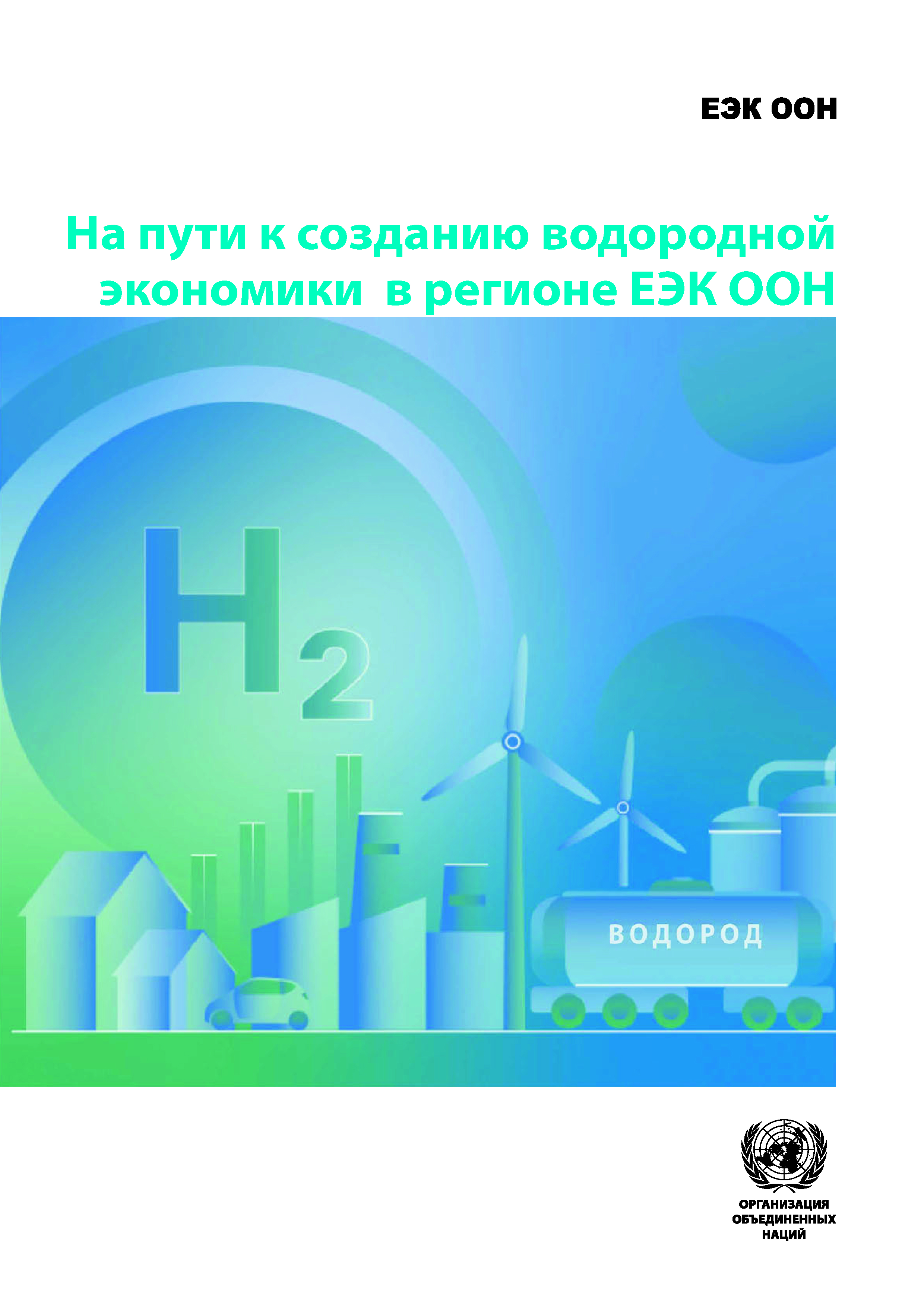
На пути к созданию водородной экономики в регионе ЕЭК ООН
The publication proposes a method for hydrogen classification needed to jumpstart production and international trade in hydrogen. It also presents several project ideas in selected UNECE member States that would accelerate deployment of hydrogen.
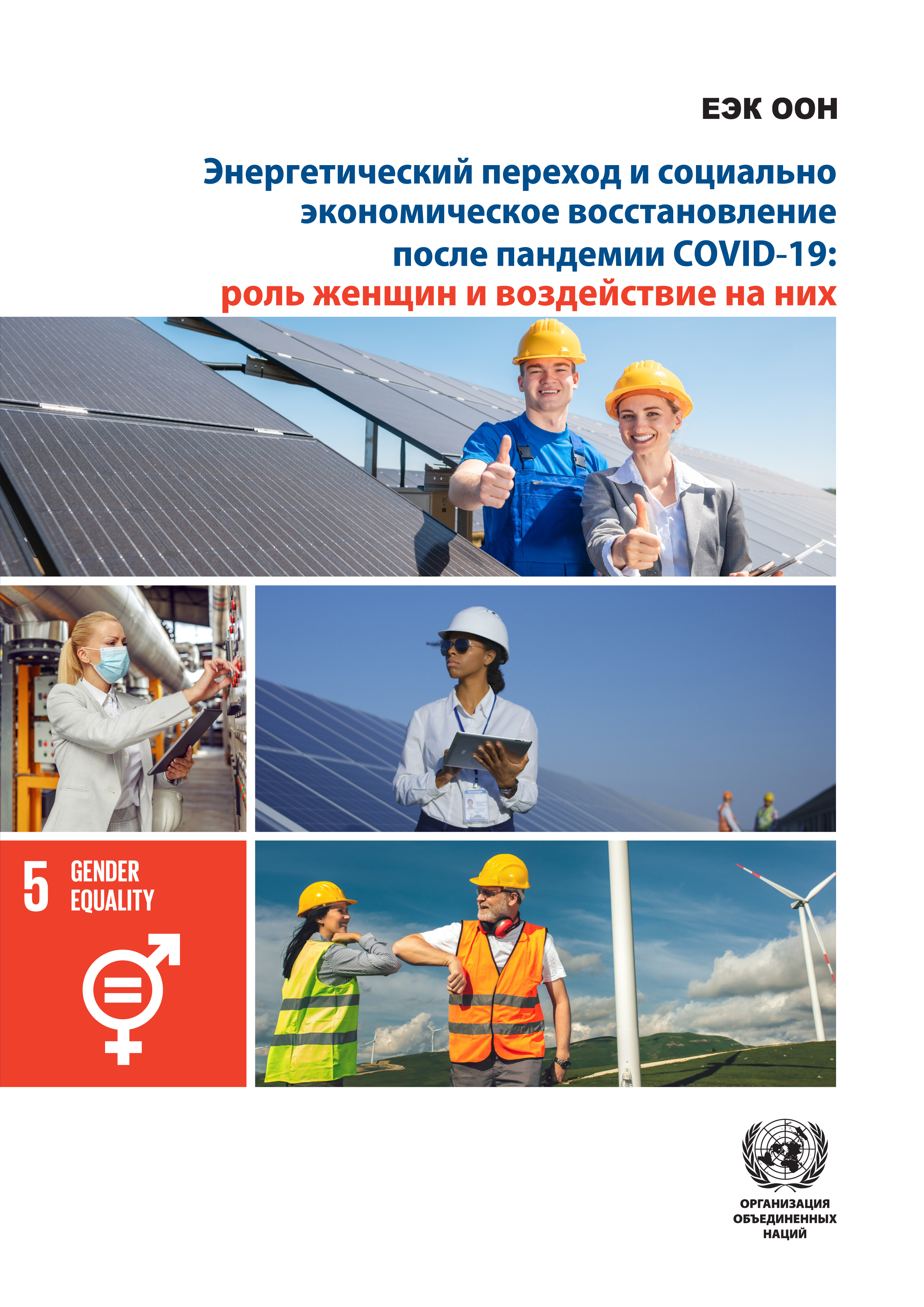
Энергетический переход и социально экономическое восстановление после пандемии COVID-19: роль женщин и воздействие на них
There are several pathways through which energy systems are transitioning to a decarbonized, sustainable economy. The development and implementation of these technologies are being driven by innovation in a wide variety of technologies. Now that most economies are emerging, governments are focused on driving a sustainable socioeconomic recovery from the COVID-19 pandemic, but there is an endemic issue which must be addressed. The energy sector is missing out on the experiences, skills, and talents of much of half the human population, which severely constrains the sustainable energy transition. In addition to a larger skilled workforce, there are several advantages in bridging the gender gap within the energy sector. Gender disparities in the energy sector have been observed around the world. Women are less represented in policymaking, corporate leadership and governance, as entrepreneurs and venture capitalists, and in the labour workforce. These barriers are surmountable using a two-way complementary approach, which is simultaneously bottom-up - action by women and society to bridge the gap of gender inequality in the energy sector – and top-down – government and policymakers need to develop policy tools to encourage women’s participation in the energy sector. This paper is summarising key findings from a report and empirical case studies of five United Nations Economic Commission for Europe (ECE) member States: Albania, Belarus, Ukraine, the United Kingdom, and Uzbekistan.
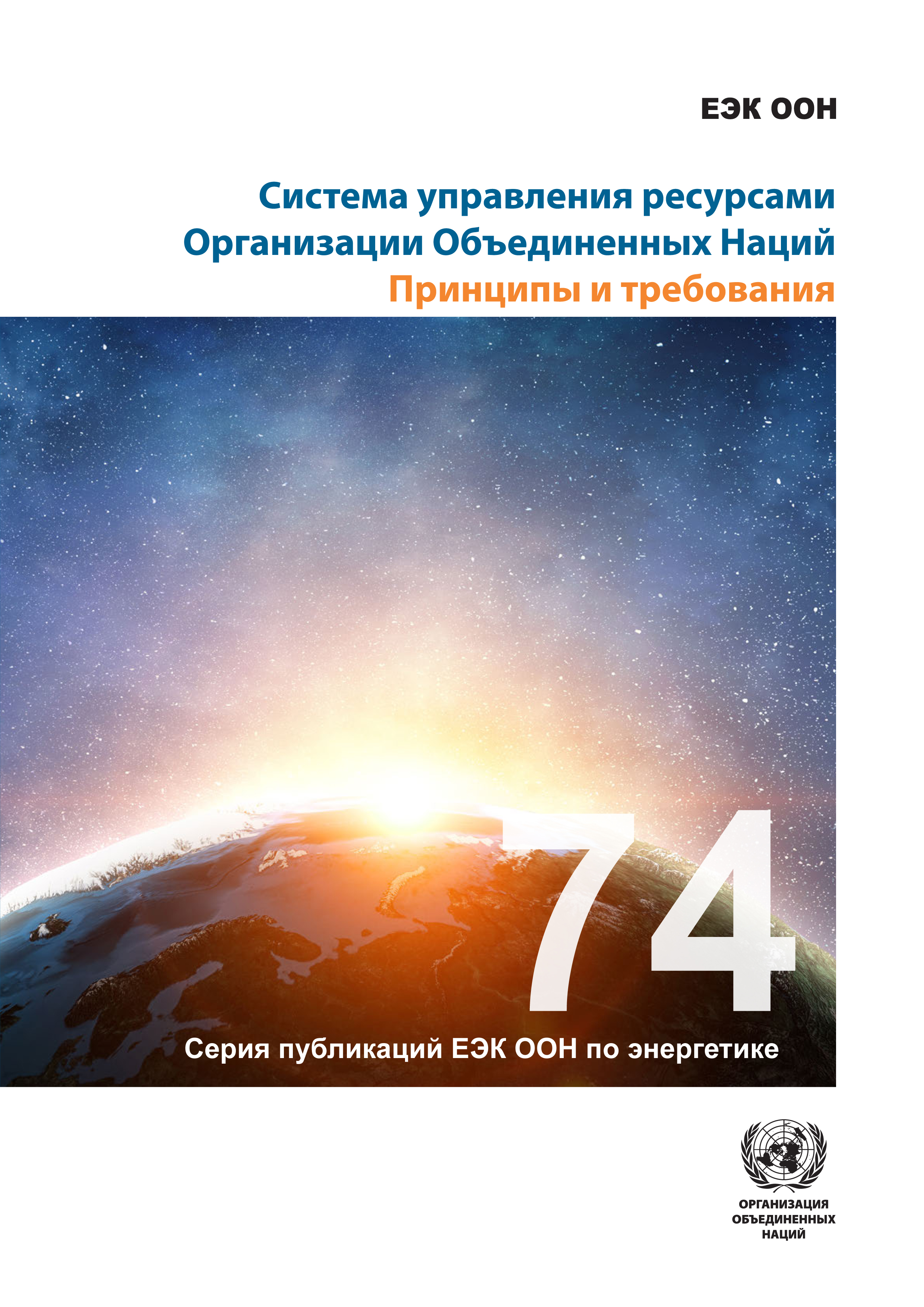
Система управления ресурсами Организации Объединенных Наций
Принципы и требования
The multifaceted requirements of sustainable development depend on optimal and responsible production and use of natural resources. The United Nations Resource Management System (UNRMS) provides the framework for integrated and sustainable management of natural resources to promote good social, environmental and economic outcomes in alignment with the 2030 Agenda for Sustainable Development. UNRMS is based on the United Nations Framework Classification of Resources (UNFC) and provides a sustainable transition pathway for producing, using and reusing natural resources to become engines of sustainable development.
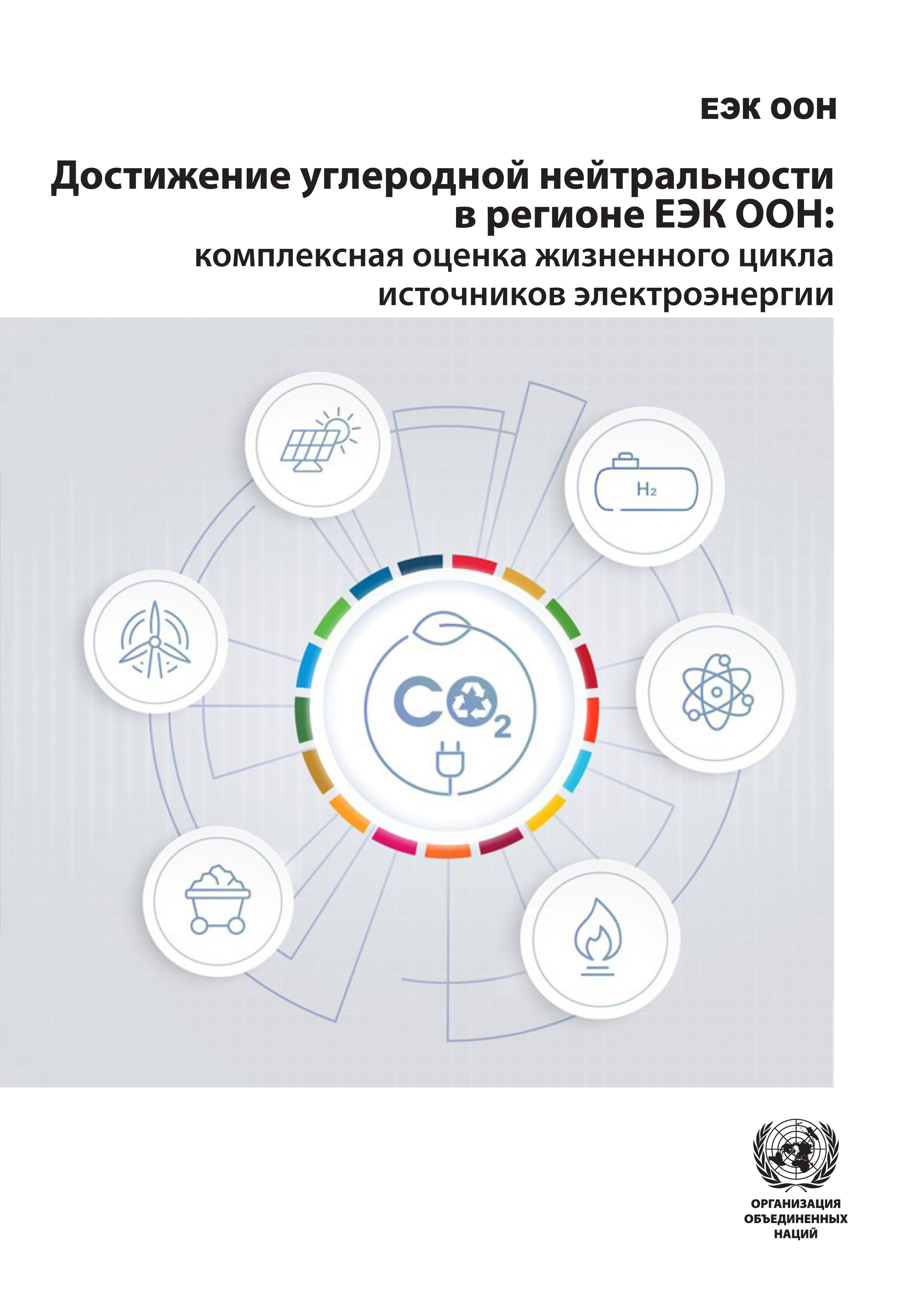
Достижение углеродной нейтральности в регионе ЕЭК ООН: комплексная оценка жизненного цикла источников электроэнергии
Well-informed energy policy design is key to reaching decarbonization targets and keep global climate change under a 2°C threshold. In particular, low-carbon electricity provision for all is essential, as the IPCC shows that the most ambitious climate mitigation scenarios entail the electrification of most of our economy. Therefore, understanding the full scale of potential impacts from current and future electricity generation is required, in order to avoid “impact leakage”, i.e., increasing non-climate environmental pressure while reducing greenhouse gas emissions. Life cycle assessment allows the evaluation of a product over its life cycle, and across a wide range of environmental indicators – this method was chosen to report on the environmental profiles of various technologies. Candidate technologies assessed include coal, natural gas, hydropower, nuclear power, concentrated solar power (CSP), photovoltaics, and wind power. Twelve global regions included in the assessment, allowing to vary load factors, methane leakage rates, or background grid electricity consumption, among other factors. With no exception, every electricity generation technology generates environmental impacts over its life cycle; and these impacts may vary widely with implementation site and other design choices. Proper energy policy should consider site-specificity by conducting lifecycle assessments that consider local conditions and potential prospective changes.

Руководство по наилучшей практике эффективного управления выбросами метана в нефтегазовом секторе
Мониторинг, отчетность, проверка (МОП) и смягчение последствий
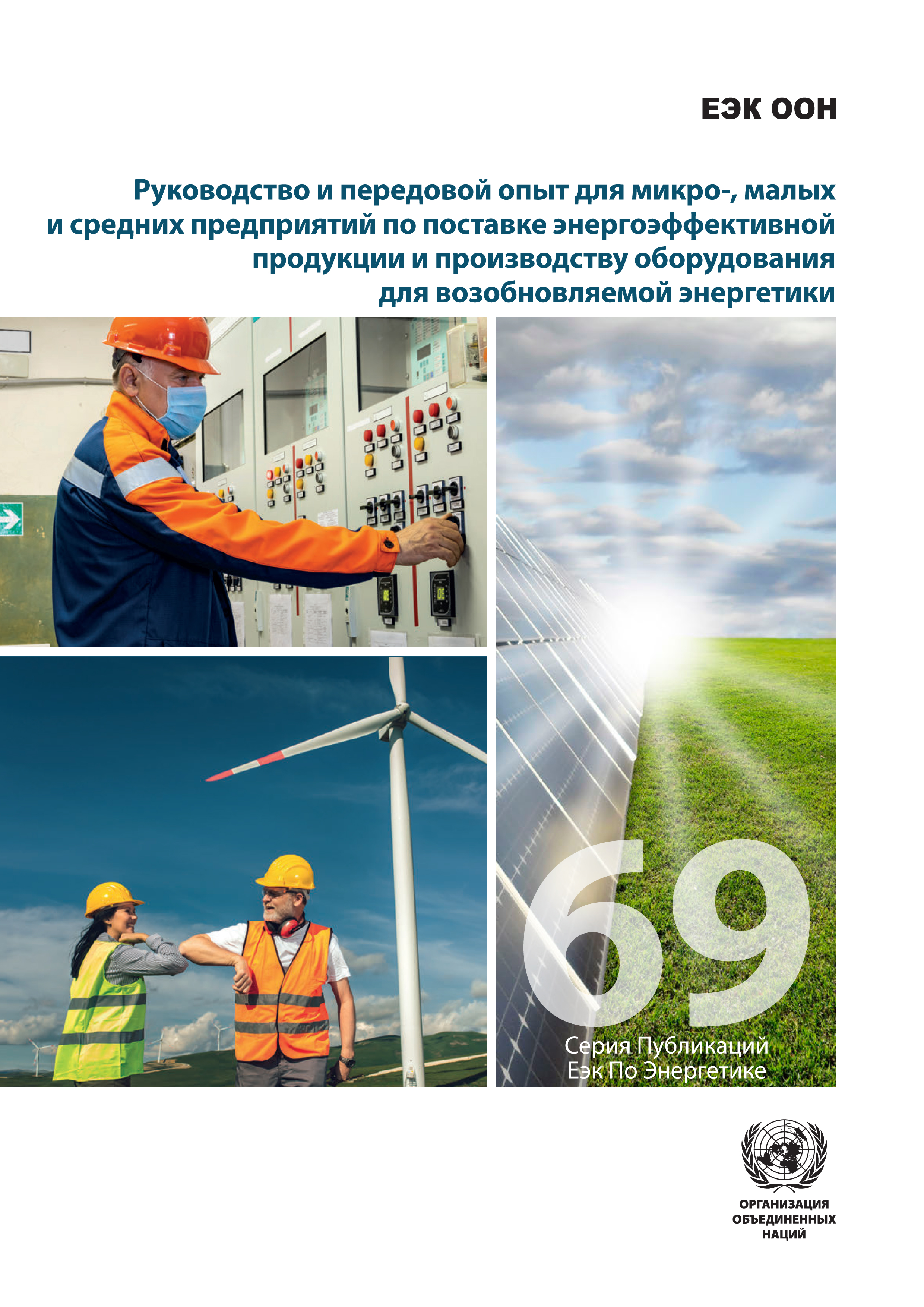
Руководство и передовой опыт для микро-, малых и средних предприятий по поставке энергоэффективной продукции и производству оборудования для возобновляемой энергетики
The role of micro-, small and medium enterprises (MSME) in delivering energy-efficient products and in providing renewable energy equipment can become crucial in the post-COVID-19 recovery phase if they are provided with necessary incentives. This can be one of the ways to restart MSME or even create new ones when job opportunities are scarce. The study includes an analysis of the environment that MSMEs face as a result of COVID-19; best practices in the area of energy efficiency and renewable energy that show how MSME may respond; measures that MSME can undertake in delivering energy-efficient products; and recommendations on creating an environment for MSME to facilitate an economic recovery in line with the Sustainable Development Goals.

Руководство по наилучшей практике эффективного извлечения и утилизации метана на выведенных из эксплуатации угольных шахтах
Coal production, transportation, storage and use account for roughly 40% of global greenhouse gas emissions. Methane, which is a potent greenhouse gas with a 100-year global warming potential 25 times that of carbon dioxide (CO2) and a 100-year global temperature potential 6-fold greater than CO2, once released from coal seams in which it is trapped creates number of problems even after cessation of mining activities. Following mine closure, methane emissions decrease, but do not stop completely. This publication presents recommended principles and standards for effective methane recovery and use from abandoned coal mines.
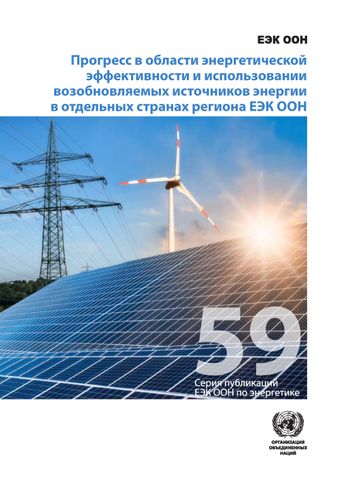
Прогресс в области энергетической эффективности и использовании возобновляемых источников энергии в отдельных странах региона ЕЭК ООН
This publication explores the progress in energy efficiency and renewable energy in selected countries of South-Eastern Europe, Eastern Europe, and Central Asia, and in the Russian Federation. The study analyzes policy, legislative and regulatory frameworks, financial environment and level of awareness in the areas of energy efficiency and renewable energy from 2010 to the present. It also identifies the existing gaps at the required frameworks and environment to promote energy efficiency and renewable energy investments in the countries. This study is intended to support countries in their ongoing efforts towards improving energy efficiency and building a strong renewable energy base. It proposes a set of recommendations for necessary steps in achieving the long-term objectives for energy mix and meeting the ambitious related targets set by the countries.
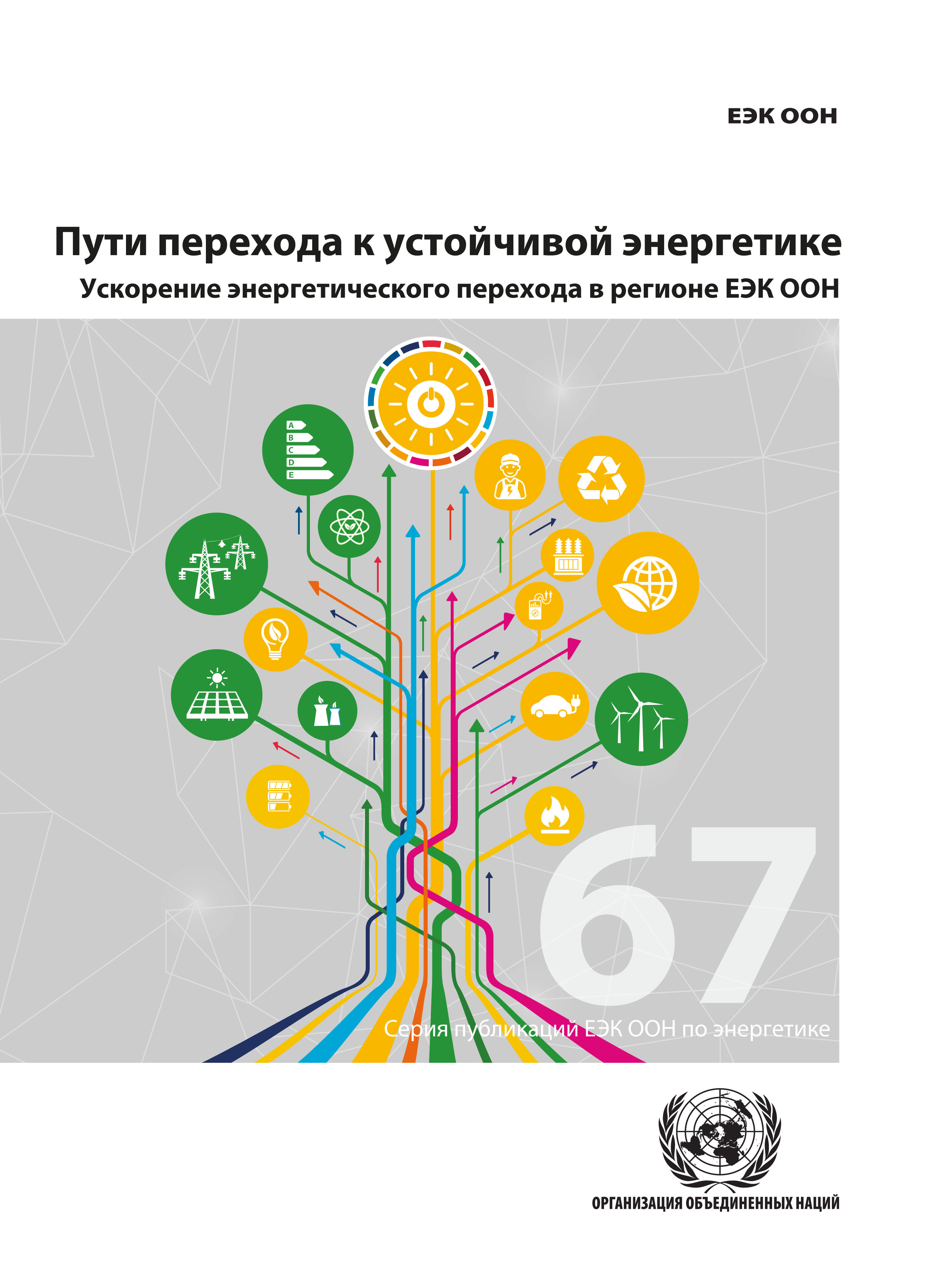
Пути Перехода к Устойчивой Энергетике
Ускорение Энергетического Перехода в Регионе ЕЭК ООН
Energy underpins the development of economies and most of the goals and targets of the 2030 Agenda. The energy sector plays a critical role in finding solutions for both sustainable development and climate change mitigation. Since the universal agreement on the seventeen Sustainable Development Goals (SDGs) including the goal on sustainable energy SDG 7 in 2015, countries have commenced with the implementation of the 2030 Agenda. However, at this stage, there is a gap between the agreed energy and climate targets and the strategies and systems that are being put in place today to achieve them. Accelerated and more ambitious strategies and policies will be needed to fill the persistent gaps to achieve the 2030 Agenda.
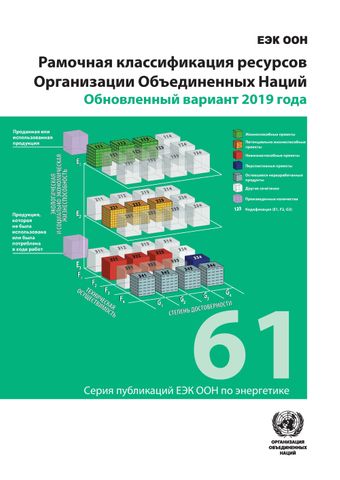
Рамочная классификация ресурсов организации объединенных наций
Обновленный вариант 2019 года
The United Nations Framework Classification for Resources (UNFC) is a global classification and management system applicable to mineral, petroleum, nuclear fuel, renewable energy and anthropogenic resources, as well as injection projects for geological storage. Since the adoption of the Sustainable Development Goals (SDGs), managing energy and raw material resources in a sustainable manner has become paramount to all stakeholders including governments, industry, investors and communities. This updated version of UNFC is intended to satisfy the requirements of different resource sectors and applications, as well as making it fully aligned to the sustainable resource management called for by the 2030 Agenda for Sustainable Development. The key changes, including the normalization of the text, make UNFC applicable for all resources.
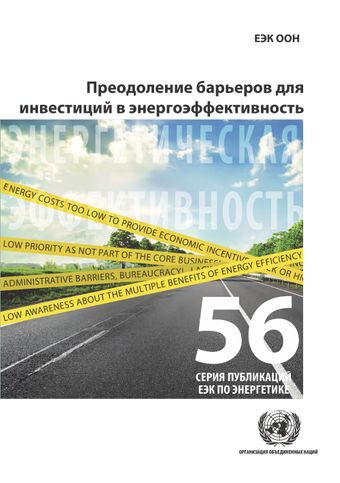
Преодоление Барьеров для Инвестиций в Энергоэффективность
Energy efficiency is widely viewed as one of the most effective ways to achieve multiple economic, social and environmental benefits and is at a core of making significant progress towards Sustainable Development Goals (SDGs) and the Paris Climate Agreement. This publication presents the outcome of a survey among the energy efficiency practitioners on the challenges and solutions for overcoming barriers to energy efficiency investments. The primary geographic focus is the UNECE region comprising 56 member States from Western Europe (members and non-members of the European Union), North America (Canada and the United States), South-East Europe, Eastern Europe, the Caucasus, Central Asia, Israel, Turkey and the Russian Federation. This is a joint effort by the UNECE and the Copenhagen Centre on Energy Efficiency. The analysis of the survey and its conclusions and recommendations will serve as a useful tool for energy efficiency community. Policy makers can apply the results to the situation in their countries and find approaches to improve investment climate for energy efficiency.
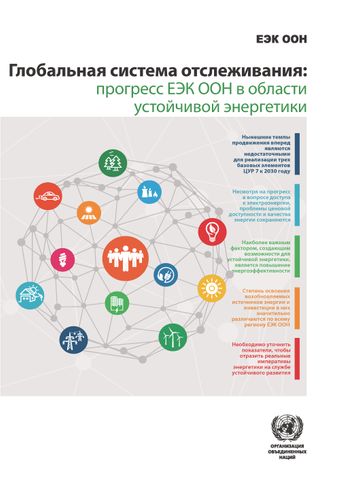
Глобальная система отслеживания
Прогресс ЕЭК ООН в области устойчивой энергетики
The United Nations Economic Commission for Europe (UNECE) regional Global Tracking Framework report is part of a series of multi-agency assessments that monitor progress towards the three Sustainable Development Goal 7 (SDG 7) objectives. This first edition of the report builds upon the 2017 Global Tracking Framework report, by tracking the indicators of each SDG 7 objective within the UNECE sub-regions. The report then goes further to identify the current status of sustainable energy across a broader set of energy indicators, identifies key issues along the energy value chain, and highlights UNECE country responses to initiate change. The report further argues that this broader set of energy indicators is required to comprehensively track energy for sustainable development.
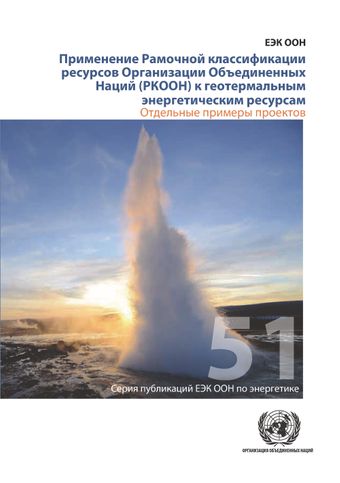
Применение Рамочной классификации ресурсов Организации Объединенных Наций (РКООН) к геотермальным энергетическим ресурсам
Отдельные примеры проектов
This publication includes a set of 14 case studies on the application of the United Nations Framework Classification for Resources (UNFC) to geothermal energy from Australia, Germany, Hungary, Iceland, Italy, the Netherlands, New Zealand, the Philippines and Russian Federation. The case studies presented here illustrate the application of the geothermal energy specifications for the uniform use of UNFC in different contexts. These application examples from different countries provide a range of scenarios in the classification of geothermal resources in a manner consistent with the classification of other energy resources.
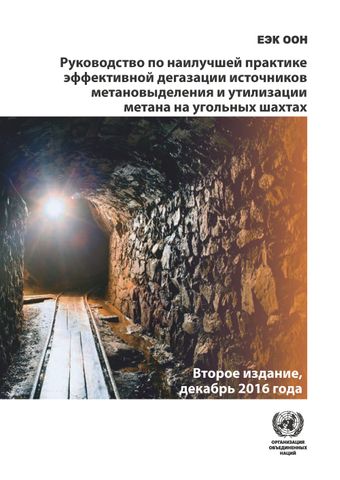
Руководство по наилучшей практике эффективной дегазации источников метановыделения и утилизации метана на угольных шахтах
The UNECE Group of Experts on Coal Mine Methane (CMM) has released the second edition of the Best Practice Guidance for Effective Methane Drainage and Use in Coal Mines. Since the first edition was published in 2010, the industry practice and regulations have evolved, and this second edition captures the most critical developments. The second edition also includes additional case studies that illustrate the application of the best practices in coal mines worldwide. The principles-based second edition of Best Practice Guidance does not replace national or international laws and regulations. Rather, it complements them through a holistic approach to safer and more effective methane management practices.
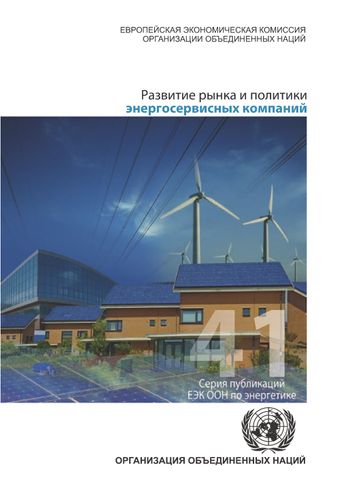
Развитие рынка и политики энергосервисных компаний
It examines the current status of ESCO development in twelve countries participating in the project. For the purposes of the report all participating countries are divided into three groups: member states of the European Union (EU), South-Eastern European countries and countries of Eastern Europe and Central Asia (the latter represented by Kazakhstan). The development of the ESCO market in these countries is not at the same level. The proposed grouping helps examine the current situation with ESCOs in the countries based on their geographical situation and neighborhood as well as the membership in and/or relationship with the EU. Information presented in this report is based on the results of desk research, findings of the Regional Analysis of Policy Reforms to Promote EE and RE Investments (undertaken earlier in the framework of the FEEI project), information provided by the National Coordinators (NCs) and National Participation Institutions (NPIs) in the framework of the project, consultations with experts in the ESCO market area and other available information.

Политика повышения энергоэффективности: передовой опыт
Структурированный анализ существующих оптимальных подходов к повышению энергоэффективности в целях смягчения изменения климата и устойчивого развития
This publication is prepared in the framework of the United Nations Development Account project “Promoting Energy Efficiency Investments for Climate Change Mitigation and Sustainable Development”, which is implemented jointly by all five UN Regional Commissions with UNECE as the lead agency. This publication highlights the best policy practices for promoting energy efficiency in UNECE region and beyond. The objective of the publication is to present a structured framework of policies and measures to promote energy efficiency investments for climate change mitigation and sustainable development, as well as to develop a menu of energy efficiency policies and measures. Governments, business community, experts, project developers, and other stakeholders will find this publication to be a useful companion for understanding and applying the best policy practices in improving energy efficiency.
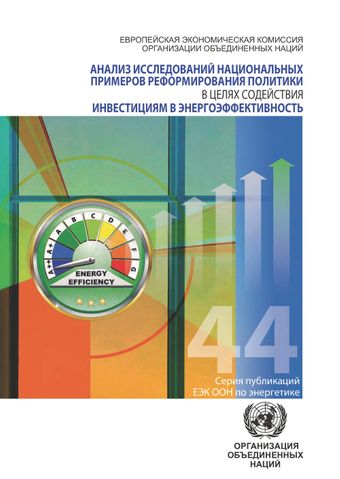
Анализ исследований национальных примеров реформирования политики в целях содействия инвестициям в энергоэффективность
Обзорный доклад по материалам исследований, полученных от азербайджана, армении, беларуси, бразилии, грузии, египта, замбии, китая, кувейта, марокко, таджикистана, таиланда, туниса, уругвая, хорватии, черногории и южной африки
This publication aims to identify existing barriers to energy efficiency policy implementation and to provide recommendations to policymakers for reforms that can support market formation and foster favourable climate for investments in energy efficiency. It develops a benchmark that should serve as a reference point for policymakers and energy experts working in the field of energy efficiency. This benchmark is a synthesis of policy incentives that should be in place in order to stimulate and ensure successful energy efficiency policy outcomes. The desired policies are divided into three groups: 1) legal, institutional and regulatory; 2) economic and financial; and 3) socio-political. A set of these policies in place at a sufficient degree in a particular country is a basis for successful formulation and implementation of energy efficiency policies and related projects.
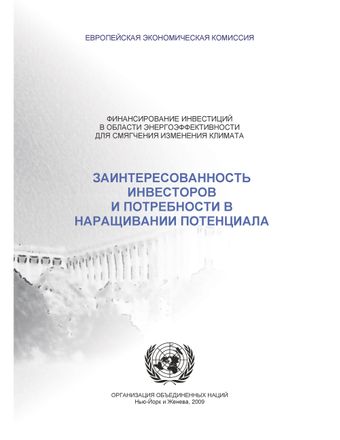
Заинтересованность инвесторов и потребности в наращивании потенциала
This Report has been prepared in the framework of the Financing Energy Efficiency and Renewable Energy Investments for Climate Change Mitigation project. The Financing Energy Efficiency and Renewable Energy Investments for Climate Change Mitigation project assists the countries of South-Eastern Europe, Eastern Europe and Central Asia to enhance their energy efficiency, diminish fuel poverty and reduce air pollution such as greenhouse gas emissions in order to meet international environmental treaty obligations under the United Nations Framework Convention on Climate Change (UNFCCC) and the United Nations Economic Commission for Europe (UNECE). It aims to provide a pipeline of new and existing projects dedicated to public-private partnership investment funds. It will establish an expanded and enhanced network of selected municipalities and energy managers, and will provide case study investment projects in renewable energy technologies, electric power and clean coal technologies.
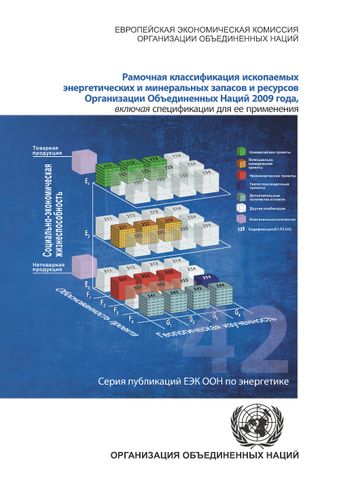
Рамочная классификация ископаемых энергетических и минеральных запасов и ресурсов Организации Объединенных Наций 2009 года, включая спецификации для ее применения
This publication contains the text of the United Nations Framework Classification for Fossil Energy and Mineral Reserves and Resources 2009 (UNFC-2009) and the Specifications (basic rules) for its Application. UNFC-2009 is a universally acceptable and internationally applicable scheme for the classification and reporting of fossil energy and mineral reserves and resources and is currently the only classification in the world to do so. As with extractive activities, UNFC-2009 reflects conditions in the economic and social domain, including markets and government framework conditions, technological and industrial maturity and the ever present uncertainties. It provides a single framework on which to build international energy and mineral studies, analyze government resource management policies, plan industrial processes and allocate capital efficiently. The Specifications make UNFC-2009 operational. They set out the basic rules that are considered necessary to ensure an appropriate level of consistency in application. They provide additional instructions on how UNFC-2009 should be applied in specific circumstances. By covering all extractive activities, UNFC-2009 captures the common principles and provides a tool for consistent reporting for these activities, regardless of the commodity. It is a strong code that paves the way for improved global communications which will aid stability and security of supplies, governed by fewer and more widely understood rules and guidelines. The efficiencies to be gained through the global use of UNFC-2009 and its Specifications are substantial.
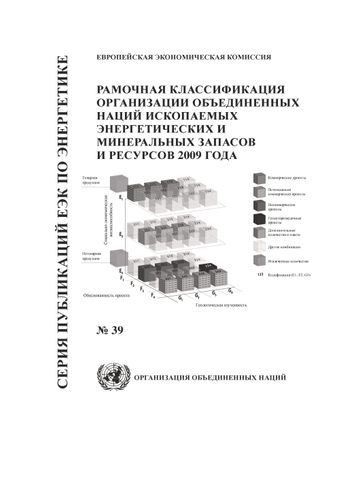
Рамочная классификация Организации Объединенных Наций ископаемых энергетических и минеральных запасов и ресурсов 2009 года
The United Nations Framework Classification for Fossil Energy and Mineral Reserves and Resources 2009 (UNFC-2009) is a universally applicable scheme for classifying/evaluating energy and mineral reserves and resources — it is the successor to UNFC-2004. Designed as an all-encompassing framework, it enables the incorporation and unification of existing national systems, while allowing their classification units and glossary to be retained. The principal objective of UNFC-2009 is to enhance international communication by providing a simple, user-friendly and uniform format for the reporting of energy reserves and resources, using market-based economic criteria.
